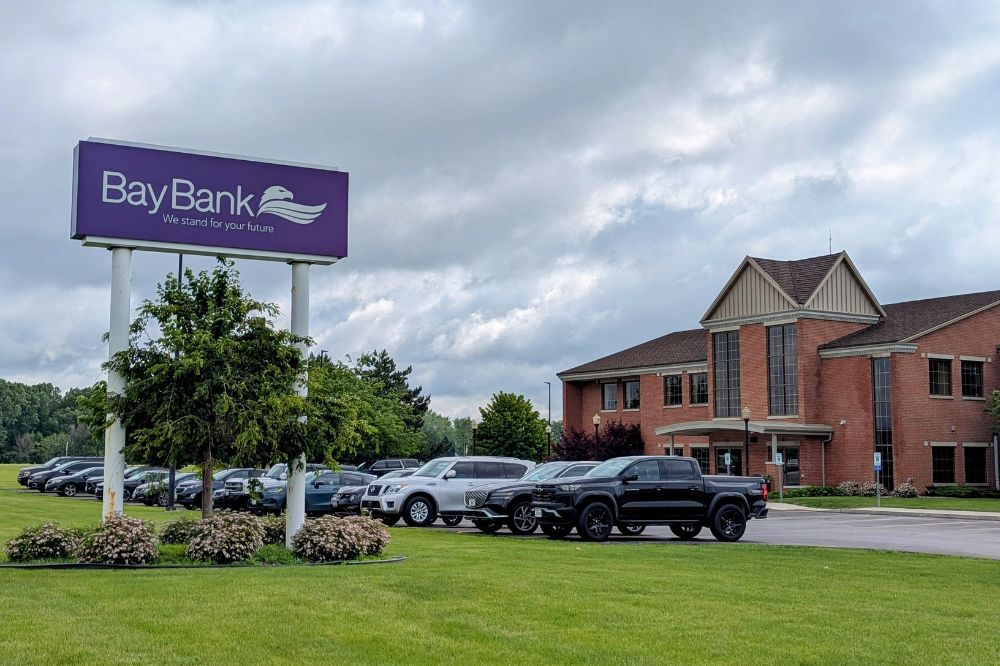
- Details
- By Bay Bank
(Green Bay, WI) – Bay Bank is proud to celebrate 30 years of serving Northeast Wisconsin as a trusted financial partner. Since its founding in 1995, Bay Bank has remained dedicated to empowering individuals, small businesses, and Tribal communities, standing firmly for financial inclusion, economic opportunity, and community growth.
Originally launched by the Oneida Nation and a group of five local businessmen, Bay Bank was envisioned as a locally controlled institution that would protect customers from the disruptions of mergers and consolidations common in larger banks. In 2000, the Oneida Nation became the sole owner of the bank, enhancing its mission to deliver accessible, community-focused financial services, particularly for tribal members.
"From helping families achieve homeownership to supporting local businesses and Tribal enterprises, Bay Bank has remained steadfast in its commitment to financial inclusion and cultural preservation,” said Jeff Bowman, President of Bay Bank. “Our success is rooted in the trust of our customers, the dedication of our employees, and the partnerships we have formed with organizations that share our vision for a stronger, more vibrant community.”
Over the years, Bay Bank has grown from $65 million to over $300 million in assets and now operates three convenient locations in Green Bay and Keshena, staffed by a dedicated team of 40 employees. As a certified Community Development Financial Institution (CDFI), Bay Bank offers personalized financial services including mortgage, consumer, and commercial loans, while also delivering programs uniquely designed to uplift Native communities.
A flagship example of this commitment is Bay Bank’s administration of the HUD Section 184 Indian Home Loan Guarantee Program—the only financial institution in the state of Wisconsin to offer this opportunity. Since 2005, Bay Bank has helped secure nearly 90 million in home loans through this program, giving enrolled members of federally recognized tribes a pathway to affordable homeownership.
In addition, Bay Bank administers the Oneida Small Business Project 2000, on behalf of the Oneida Nation of Wisconsin. This revolving loan program has provided over $5 million in investments to more than 100 Oneida entrepreneurs. This program offers essential support to help small business owners succeed and contribute to local economic development.
As Bay Bank reflects on three decades of progress, its leaders are already focused on the future.
“Looking ahead, Bay Bank remains committed to innovation and growth while staying true to our founding values,” said Nathan King, Vice President of Bay Bank. “As we embrace the future, we will continue to provide exceptional financial services, invest in our communities, and empower the next generation of leaders and entrepreneurs.”
Bay Bank invites community members, partners, and customers to join in celebrating 30 years of service and looks forward to building a brighter future, together.
ABOUT BAY BANK
Bay Bank has a long and proud history of standing for its customers’ future. Founded in 1995, the Oneida Nation became the bank’s sole owner in 2000. The bank’s operations, policies and locally focused mission were enhanced after the purchase, as Bay Bank provided more federally funded programs to directly assist tribal members. In addition, Bay Bank and the Oneida Nation developed unique mortgage and entrepreneurial programs to assist Oneidas in obtaining housing and starting business ventures. Today, Bay Bank has assets of $300 million and a dedicated team of 40 employees with two convenient locations for customers in the Greater Green Bay area, as well as a branch office in Keshena, which opened in January 2021. Bay Bank is the only Greater Green Bay bank to offer the U.S. Department of Housing and Urban Development (HUD) Section 184 Indian Home Loan Guarantee Program. Learn more at BayBankGB.com.
Help us defend tribal sovereignty.
At Native News Online, our mission is rooted in telling the stories that strengthen sovereignty and uplift Indigenous voices — not just at year’s end, but every single day.
Because of your generosity last year, we were able to keep our reporters on the ground in tribal communities, at national gatherings and in the halls of Congress — covering the issues that matter most to Indian Country: sovereignty, culture, education, health and economic opportunity.
That support sustained us through a tough year in 2025. Now, as we look to the year ahead, we need your help right now to ensure warrior journalism remains strong — reporting that defends tribal sovereignty, amplifies Native truth, and holds power accountable.
 The stakes couldn't be higher. Your support keeps Native voices heard, Native stories told and Native sovereignty defended.
The stakes couldn't be higher. Your support keeps Native voices heard, Native stories told and Native sovereignty defended.
Stand with Warrior Journalism today.
Levi Rickert (Potawatomi), Editor & Publisher
